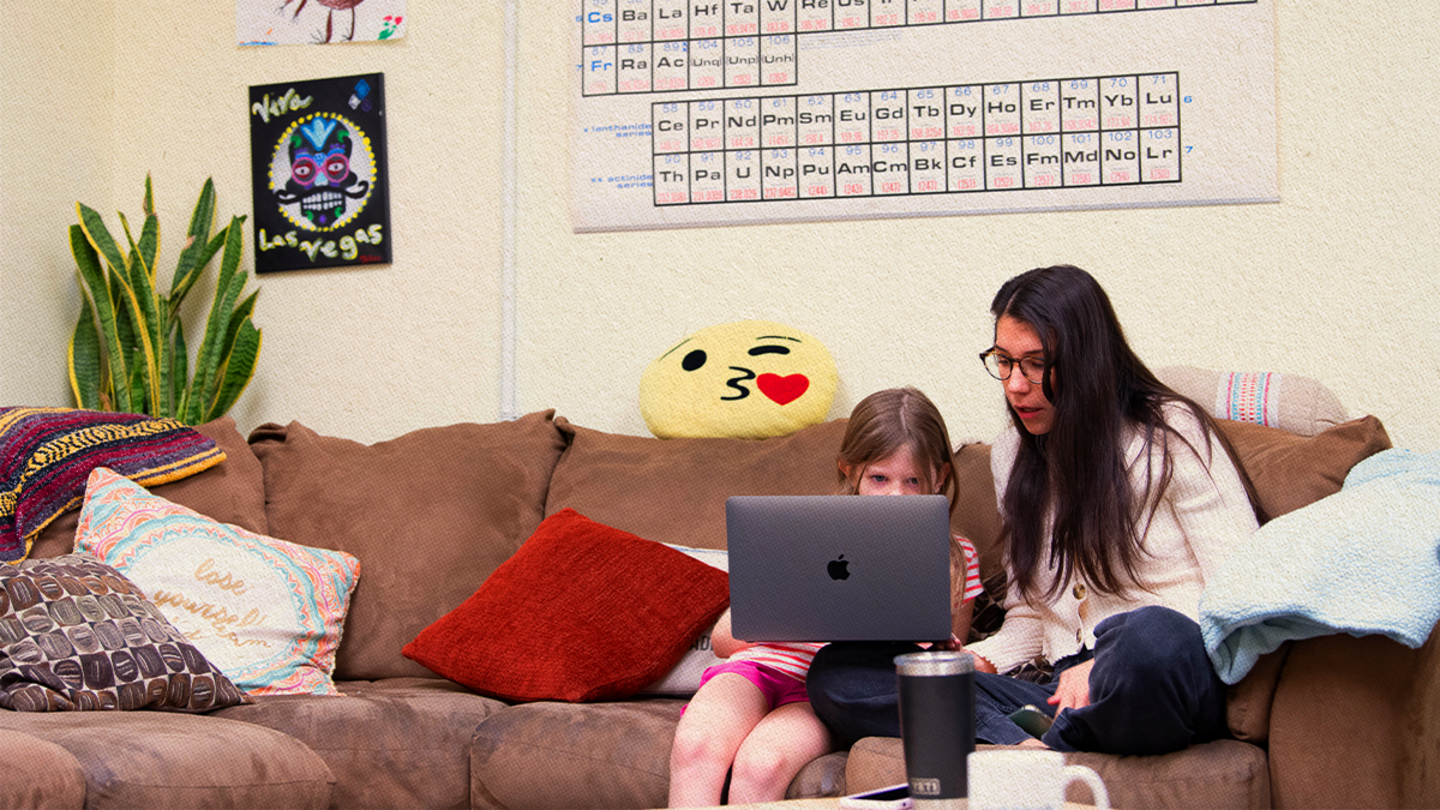In the Las Vegas education system, a unique education model is spreading rapidly: the microschool.
Several Las Vegas-based educators launched smaller academies with flexible curriculums that operate outside the public system and strive to better suit a wider range of students. There's Pilita Simpson, who founded Positively Arts, and James Lomax, who heads Life Skills Academy. Felicia Wright started The Learning Outpost, and Amy Novak the Acton Academy Red Rock. Sarah Tavernetti and Yamila De Leon co-founded Bloom Academy.
Las Vegas is a microcosm for a larger movement taking hold across the country: the growing recognition that traditional education just isn't cutting it anymore for many families. As Vegas educators are modeling, parents can choose what learning looks like on their own terms — and more and more are starting to take their advice.
Many of the Vegas educators can thank the same two leaders for helping them along the way: Ashley and Don Soifer, who founded the National Microschooling Center, a Vegas-based service organization that guides prospective microschool educators.
The Soifers first started running in-person microschools as a collaboration with the city leadership of North Las Vegas in 2020, at the onset of the COVID-19 pandemic. But what started out as a one-off project, they quickly saw, had potential for much more.
"We started hearing from different folks in Nevada, saying, 'Hey, I'd really like to start a microschool. Can you help me?'" Ashley remembers. "Or, 'Hey, I'm doing this thing, and I think it might be a microschool. And so we started meeting with leaders in Nevada and helping those that already had microschools up and going, and then also helping those that were interested in launching microschools and connecting them with parents."
The Soifers' work quickly grew to encompass over 20 different microschools across Nevada. Soon the phone was ringing with calls from educators in West Virginia, Mississippi, Idaho and other states wanting their help as well. Educators saw what was happening in Las Vegas, and the benefits were clear.
"This approach … leads to families feeling more connected, more involved and just more excited about schools," says Grant Hewitt, vice president for foundational education at Stand Together. "You hear over and over from kids that going to a microschool isn't like going to school … It is fun. These environments are defining for thousands of families across the country what education means and the value it brings."
What exactly is a microschool?
Defining a microschool "can be tricky," but they tend to emphasize nontraditional approaches to teaching, smaller class sizes, and individualized curriculum that suits students' specific needs. Regardless of their goals, microschools "have the same mission at their core: to empower children and parents to individualize education and reach their fullest potential," according to Stand Together Trust. Some microschools focus on developing life skills; others use the performing arts to increase independence or focus on project-based learning. This leads to a myriad of benefits for students and families alike, including:
- The opportunity to center education around what works best for students, and suits their unique goals and visions
- More options for students with nontraditional learning styles, or students with disabilities
- Bringing out the unique talents and strengths of each student, thus setting them up for success over the long run
"These innovators know their schools are not for everyone," says Hewitt. "One microschool could work great for a kid and another one does not. So these innovative environments don't view themselves as competition, but rather about finding the right fit for the child."
Why the Las Vegas education system is the perfect storm for individualization
But why Sin City to lead an educational revolution?
Hewitt says Las Vegas is the "perfect storm" for a microschool microcosm because it has families needing a change and innovative educators.
Also, regulations around homeschooling in Nevada are relatively lenient, making it easier for children to leave the traditional school system and go completely into microschooling, or a hybrid model. The popularity of homeschooling means families are used to nontraditional schooling, leading to a welcoming environment for alternatives.
Las Vegas education is a microcosm for a national movement
What has started in Las Vegas may be a model for the rest of the country.
Las Vegas reflects a larger movement to adopt more individualized, nontraditional educational models.
This is especially true in the wake of COVID-19. During the pandemic, many parents experimented with new and hybrid learning methods for their children. Now that they can go back to traditional models, many have realized that those models don't serve their family's goals as well as others might.
While circumstances in Vegas may be ideal for microschools to take hold, in other areas, other unique educational models might be better suited. This could be anything from gradeless schools, to student-directed curricula, to experiential learning programs and beyond.
"This is a movement, not a moment," Hewitt says.
The Stand Together community partners with changemakers who are tackling the root causes of America's biggest problems.
Learn more about Stand Together's education efforts, and explore ways you can partner with us.




